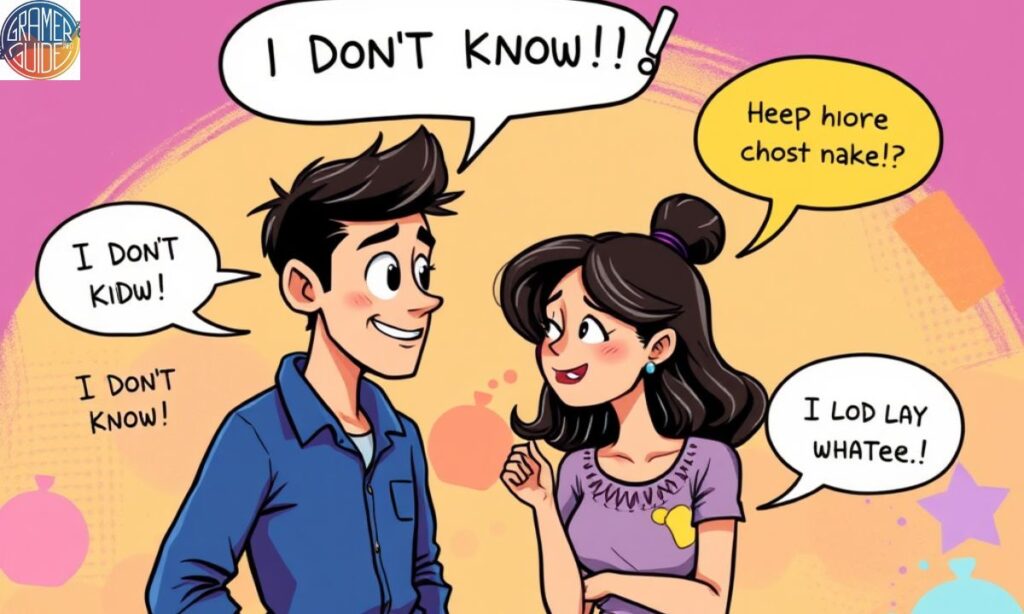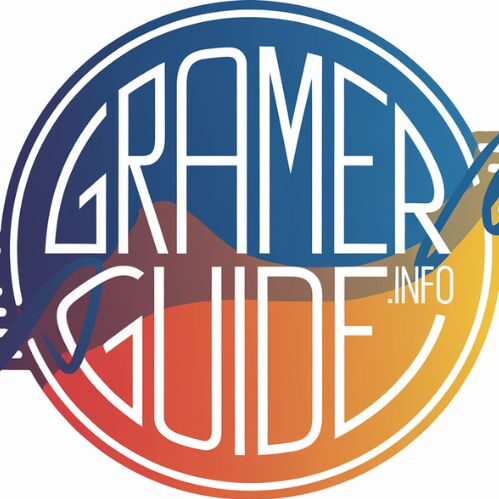When someone says “I don’t know”, it often leaves us feeling uncertain. Whether you’re in a conversation or a professional setting, responding thoughtfully can make a big difference. The right reply can ease tension, encourage discussion, or even spark creativity.
With over 300 unique responses, you’ll have the perfect reply ready for any situation. Let’s explore the most effective and interesting ways to respond to “IDK”.
Understanding “I Don’t Know”
Saying “I don’t know” can mean more than just lacking an answer. It may reflect confusion, hesitation, or uncertainty. People often use it to avoid conflict or pressure. Understanding this helps respond with empathy and clarity.
Sometimes, it shows that someone is not ready to decide. They may need more time, space, or support. Recognizing this can improve communication and trust. Respond with patience rather than forcing a reply.
In many cases, IDK is a placeholder for deeper thoughts. People might be unsure how to express their feelings. It gives a chance to ask better follow-up questions. Help them open up through gentle conversation.

Encouragement
When someone says they don’t know, a little encouragement can go a long way. These replies help boost their confidence and ease their anxiety.
- That’s totally fine, not knowing means you’re open to learning.
- It’s okay, nobody has all the answers right away.
- Take your time, you’ll figure it out when you’re ready.
- Every expert once said I don’t know too.
- This is a great chance to learn something new.
- It’s perfectly normal to feel unsure sometimes.
- You’re already on the right track by thinking about it.
- Don’t be too hard on yourself, this happens to everyone.
- Mistakes and questions help us grow.
- Learning starts when we admit we don’t know something.
- You’ll get there, just keep trying and stay curious.
- The best ideas often come from asking questions like this.
Seeking More Information
Instead of stopping at I don’t know, try to dig deeper. These replies help encourage more context or exploration.
- What part of it do you find most confusing?
- Can you explain what you’ve already looked into?
- What led you to this question in the first place?
- Is there a specific area you’re unsure about?
- Can we break this down into smaller steps?
- What do you think might help you find the answer?
- Have you seen something similar before?
- What exactly would you like to understand better?
- Could you give me an example of what you mean?
- Where did you last feel confident about this?
- Is there anything you do know that we can build on?
- What details are you missing to move forward?
Offering Help
Offering help turns IDK moments into teamwork. These replies show you’re willing to support them and move forward together.
- I’d love to help you figure this out, let’s try together.
- Want to brainstorm some ideas with me?
- I can help you research if you’d like.
- Let me know where you’re stuck, we’ll start from there.
- I’ve been through something similar, want my input?
- We can look into this and compare what we find.
- If you want, I can explain how I approached it.
- I’ll guide you step-by-step until it makes sense.
- Let’s solve it as a team, two heads are better than one.
- Don’t worry, we’ll work through it together.
- If you’re unsure, we can try a few solutions.
- I’ll stay with you until we figure it out.
Suggesting Resources
Sometimes the right information is all someone needs. These responses help by pointing them toward useful tools and references.
- You might want to check out this guide on the topic.
- There’s a great YouTube video that explains it really well.
- A good book on this is available at the library or online.
- Have you tried a quick search on trusted websites?
- This app might help you explore the idea further.
- I’ve seen this topic explained well on a podcast.
- There’s a free course that dives into this topic step by step.
- You could try checking the official site for details.
- There’s a forum where people discuss stuff like this often.
- I follow a blog that breaks it down really clearly.
- Maybe we can find a tutorial or visual guide.
- Let’s check out some articles and see what they say.
Empathy
When someone says they don’t know, it’s often because they feel stuck. These empathetic replies help them feel safe, understood, and supported.
- I get it, not knowing something can feel frustrating.
- You’re not alone, everyone has those moments.
- It’s okay to feel unsure, this happens to the best of us.
- I’ve been in your shoes before, it can be confusing.
- No pressure, you’ll get there in your own time.
- It’s brave to admit you don’t know, that’s how we grow.
- This is a safe space, there’s no judgment here.
- We all go through moments of doubt, it’s human.
- I respect that you’re being honest about how you feel.
- You’re doing better than you think, just keep going.
- I understand this can be overwhelming, take it slow.
- Let’s figure it out together, no need to rush.
Redirecting
Sometimes shifting the focus can help clear the confusion. These replies guide the conversation in a more helpful or productive direction.
- Let’s look at something else for now and come back to this later
- Maybe starting from a different angle will help you understand
- What if we switch topics for a second to refresh your mind
- Try thinking about how this connects to something you already know
- Let’s take a break and return with fresh thoughts
- Would you feel better working on another part of this
- What’s another way we could look at the situation
- Let’s change the question a little to make it simpler
- Sometimes focusing on what you do know can help
- Could we reframe the problem in a way that feels less confusing
- Maybe if we think about the end goal, the path will be clearer
- Let’s pause for a second and reset the conversation
Humor
Using light humor can relieve tension and make people feel more relaxed. These funny but kind replies help keep the mood positive.
- Well, at least you’re honest — that’s step one
- That’s okay, I don’t know most things before coffee either
- You’ve got options: Google it, guess wildly, or phone a friend
- That’s better than pretending you know and being wrong
- Great, we can start our own club of IDK experts
- The good news is, we’re not in a quiz show
- Welcome to the human race — we all say it
- Even the smartest people say I don’t know daily
- If you ever figure it out, send me the memo
- Hey, I’ve got no clue either, but we’ll fake it well
- One day we’ll laugh about this confusion, probably
- Let’s just say it’s a mystery for now and move on
Encouraging Critical Thinking
Encouraging thought helps people grow and find answers themselves. These replies guide them to look deeper and think through the issue.
- What’s one possible explanation you can come up with
- Could you make a guess based on what you already know
- What would happen if we tested a few ideas
- What do you think someone else might say about this
- Try imagining different outcomes and compare them
- If you had to explain this to someone else, how would you
- What are the pros and cons of each possibility
- What question should we ask next to move forward
- Is there a missing piece you think we’re overlooking
- What if we assumed the opposite, would that work
- Can we break the issue into smaller parts and examine each
- Which part seems most confusing to you right now
Reassurance
People need to know it’s okay not to have the answer. These replies help them feel supported and remind them it’s all part of the process.
- It’s completely normal to feel unsure about things
- You’re doing just fine, even with uncertainty
- Everyone has moments where they feel lost
- What matters most is that you’re trying
- You don’t have to solve everything all at once
- I know this feels frustrating, but it will pass
- It’s okay not to have the answer right now
- Your effort is more important than getting it right
- We’ll work through this together, no rush
- It’s all part of learning and growing
- One step at a time is all anyone can do
- You’ve handled tough things before — you’ve got this
Follow-up
Following up shows you care and want to stay connected. These replies keep the conversation going without pressure.
- Want to talk more about it later
- Let’s revisit this after you’ve had time to think
- I’ll check in with you tomorrow, sound good
- If you come up with something later, message me
- I’ll keep thinking too and let you know if I find anything
- Can we circle back to this in a bit
- Don’t worry, just let me know when you’re ready
- Let’s set a time to look into this again
- I’ll follow up next week in case anything changes
- You can always reach out when it makes more sense
- Let me know if anything comes to mind later
- I’m here whenever you feel like picking it up again
Curiosity
Curiosity can unlock ideas and lead to better answers. These replies show interest and invite deeper thought.
- What made you think of this topic today
- How did you come across this question
- Is there something specific that sparked your curiosity
- What do you think makes this hard to figure out
- What are you hoping to understand better
- Is there something similar you’ve thought about before
- How do you feel when you think about this
- What kind of answers would make the most sense to you
- Is this connected to something else you’re dealing with
- What makes this stand out to you right now
- Where do you usually go to look for answers
- What’s one thing you do feel clear about
Invitation to Discuss
Sometimes people just need permission to share more. These replies create a space where they feel safe to open up.
- Want to talk it through together
- I’m all ears if you feel like sharing more
- We can unpack this slowly if you want
- It’s okay to take your time and explain
- Feel free to walk me through your thinking
- I’d love to hear what’s on your mind
- You can share only what you’re comfortable with
- We don’t have to solve it now, just chat
- Let’s go through it step by step
- I’m happy to listen if you want to explore ideas
- There’s no pressure, just a friendly conversation
- Let’s dive into it together when you’re ready
Challenging
Pushing someone in a kind way can help spark new thinking. These replies are respectful but firm, encouraging a second look.
- Are you sure you don’t know, or just unsure where to start
- What would happen if you had to decide right now
- Let’s assume you do know deep down — what comes to mind
- What if I told you I think you actually do have an idea
- Don’t sell yourself short, you know more than you think
- Try taking a wild guess — you might surprise yourself
- If someone asked you for advice, what would you say
- Let’s hear your first instinct, even if it’s not perfect
- You’ve solved tougher things before — what’s different now
- What would you do if there were no wrong answers
- Are you open to being pushed a little here
- Could it be that fear is blocking what you already know
Providing Alternatives
Offering other routes gives people more tools to explore. These replies offer fresh ways to think about the issue.
- Want to look at this from another point of view
- How about we try a different approach
- Maybe there’s a shortcut we haven’t considered
- Let’s compare two totally different ways of thinking
- Could you reword the question in your own way
- Here’s another way to break it down
- You can try a visual tool instead of words
- What would happen if you simplified it
- Have you tried explaining this out loud to yourself
- Maybe we can use an analogy or story to help
- What if we flipped the problem upside down
- Sometimes the best answers come from unusual ideas
Problem-Solving
Getting practical can help move people forward. These replies focus on breaking the issue into manageable parts.
- Let’s list what we know so far
- What’s the first small step we can take
- Can we break this into smaller tasks
- What tools might help you figure it out
- Have you tried writing out your thoughts
- Let’s focus on just one thing at a time
- What’s the simplest version of this problem
- What can we try right now, even if it’s small
- Can we build a plan to work through it
- What’s something that worked in the past
- Let’s test a few options and see what sticks
- What would be your next move if you had to choose
Encouraging Exploration
Exploring ideas freely can bring surprising clarity. These replies invite curiosity without pressure.
- Let’s just explore this and see where it goes
- Try looking at this like a puzzle
- You don’t need a full answer — just follow the thread
- See what comes up when you think about it more
- Maybe this is a chance to learn something unexpected
- Let’s dig around a little and keep an open mind
- You could try connecting this to other interests
- No need to rush, just enjoy discovering new pieces
- Think of this as an experiment, not a test
- Follow what feels interesting and go from there
- Try different directions until one makes sense
- This is a safe space to try and explore freely
Sharing Personal Experience
Sharing your own story can make others feel less alone. These replies offer connection and real-life perspective.
- I’ve been there too and it was tough
- I didn’t know either until I tried a few things
- When I faced something like this, I felt stuck too
- What helped me was taking it one step at a time
- I learned a lot by just being curious
- Talking it out made a big difference for me
- I used to avoid stuff like this until I found a system
- It’s normal to feel unsure — I’ve felt that way many times
- I had a breakthrough when I asked more questions
- The first step is always the hardest, in my experience
- You’d be surprised how many people go through the same thing
- I still have moments like that, and it’s totally okay
Effective Communication Techniques
Active listening is key when someone says they don’t know. Give them full attention and avoid cutting them off. Simple nods and short words like “I see” help. It builds trust and encourages them to share more.
Use open-ended questions to continue the talk. Ask things like what’s confusing or what they think. This helps them feel more involved and confident. Avoid yes-or-no questions that end the discussion fast.
Empathy matters in every uncertain moment. Let them know it’s okay not to know everything. Use calm and supportive tones in your voice. It turns confusion into a chance to connect.
Advanced Techniques for Handling “IDK”
One smart way to respond is by reframing the issue. Instead of pushing, try asking from a different angle. It helps spark new thoughts or fresh ideas. This reduces pressure and keeps the talk going.
Another method is brainstorming together with no pressure. Invite the person to share even rough ideas. Sometimes collaboration helps unlock hidden answers. It becomes a team effort, not a test.
Use reflective language to guide their thinking process. Say things like “It sounds like you’re unsure because…” This shows you understand their struggle without judgment. It opens the door to deeper reflection and clarity.
Common Mistakes to Avoid
Avoid being too pushy or demanding answers quickly. It can make someone shut down or feel judged. Patience often leads to better and more honest talks. Let the conversation grow at its own pace.
Don’t fill silence with too much information. Overloading someone when they’re confused can backfire. Give them time to think and respond naturally. Less is often more in these situations.
Never assume they don’t care or are lazy. Everyone struggles with uncertainty sometimes. Labeling or blaming can damage relationships. Show understanding and guide them gently forward.
FAQ’s
How do I respond to “IDK” without sounding pushy?
Use a calm and understanding tone. Ask open-ended questions to keep the conversation going.
What if the person genuinely doesn’t know?
Acknowledge their uncertainty and offer to explore the answer together.
Is it okay to say “I don’t know” myself?
Absolutely! It’s honest and can lead to better collaboration and problem-solving.
How can I help someone who frequently says “IDK”?
Encourage them to think critically and provide support when they feel stuck.
What’s the best way to turn “IDK” into a learning opportunity?
Ask questions that prompt deeper thinking and explore the topic together.
Conclusion
Responding to “I don’t know” with empathy, curiosity, and helpfulness can transform a simple conversation into a productive exchange. Whether in professional or casual settings, the right responses foster understanding and collaboration. By using these 300+ replies, you can turn uncertainty into opportunities for learning and growth.

I’m Hayyat, a passionate content writer and SEO expert with 5 years of experience. I specialize in creating engaging content and optimizing it for search engines.





